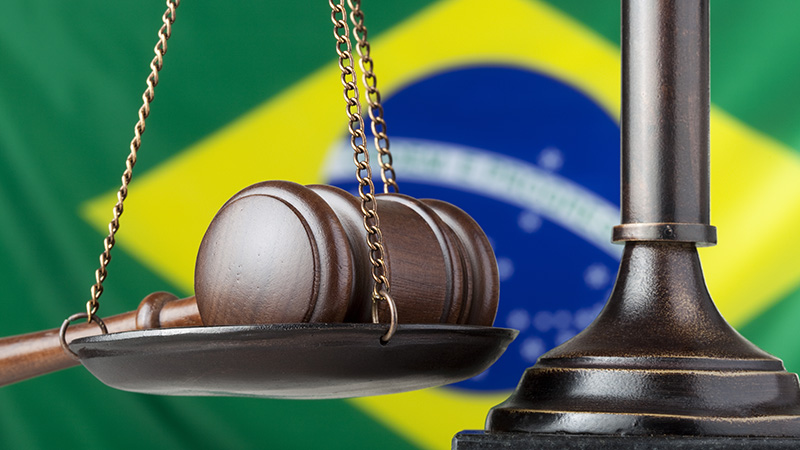
Angle

You Can’t Always Get What You Want
- Cyber Breach
- 6 Mins
Petrobras Petition
Foreign litigation stemming from a class action that settled in July (In re Petrobras Securities Litigation, 2019 WL 3403281 (S.D.N.Y. July 29, 2019)) demonstrates the statute’s limitations. In Petrobras case, the class claimed that Petrobras made materially false statements concerning securities it sold on the New York Stock Exchange. One of the class members, Cornell University, filed a separate action before a Brazilian arbitration body relating to other securities Petrobras sold on Brazil’s stock exchange. Cornell University filed a 1782 petition seeking discovery documents previously produced in the U.S. class action case, noting the similarity between the underlying claims. The U.S. federal judge performed a thorough analysis of the 1782 statute and denied this request. The significance of this denial exists in the fine details of the judge’s ruling.
First, the judge provided an overview of the law’s mandatory requirements: 1) the person holding the discovery must reside or be found in the petition’s filing district, 2) the petitioner will use the discovery in a foreign proceeding before a foreign tribunal, and 3) the petitioner is either a foreign tribunal or interested person. The Petrobras petition did not make it past the first step for lack of personal jurisdiction.
Another interesting observation about this analysis is that the judge took things a step further and analyzed whether the Brazilian arbitration body constituted a “foreign tribunal.” The judge did not consider it a “foreign tribunal” because the Second Circuit precedent illustrates that private arbitration bodies are not foreign tribunals under 1782 petitions. The judge remained firm on this position even though the petitioner asserted a Supreme Court case (Intel v. Advanced Micro Devices, 542 U.S. 241 (2004)) stating in dicta that “arbitral tribunals” fall under the statute’s purview. The judge reasoned that the decision did not specify private arbitration bodies and that a passing dicta would likely not overturn strong Second Circuit precedent. However, keep in mind that if a request does meet these three minimum requirements, the court will still ask the following questions before deciding whether to grant the petition:
- Is the person or organization holding the discovery involved in the foreign case?
- What is the nature of the foreign tribunal, the character of the foreign proceedings, and foreign receptivity to U.S. judicial assistance? For example a history of the foreign tribunal denying help or cooperation from the U.S. would be a valid reason for the court to deny the petition.
- Is the petitioner trying to circumvent foreign discovery restrictions or policies?
- Is the request unduly intrusive or burdensome? Examples could include situations where the request seeks private information or would require high costs for retrieval and production.
Discovery Implications and Predictions
The trend of cracking down on personal jurisdiction continued in late August before another New York federal court (In re the Application of ALB-GOLD Teigwaren GmbH for an Order, Pursuant to 28 U.S.C. §1782 to Conduct Discovery for Use in Foreign Proceedings, Case No. 1:19-mc-01166 (U.S. District Court for the E.D.N.Y. Aug. 30, 2019)) where a judge tentatively denied the 1782 discovery request for select parties based on lack of personal jurisdiction evidence. In that matter, residency was unclear because the individual allegedly moved out of state and dissolved their New York business. The judge ordered additional discovery on the jurisdictional issue before solidifying his ruling. Moving forward, expect to see more thorough analysis and evidence requirements for personal jurisdiction – at least with 1782 petitions filed in the Second Circuit.
It will also be interesting to watch how other courts respond to the issue of whether private arbitral bodies constitute foreign tribunals under the statute, as there appears to be a circuit split. The same argument Cornell University made in the Petrobras case – that the Intel Supreme Court case covers private arbitral bodies under 1782 petitions – is currently before the Seventh Circuit (Servotronics Inc. v. Rolls-Royce PLC, Case. No. 0:19-cv-01847 (7th Cir.)).
As in Petrobras, the panel judges also mentioned that the reference from Intel was not decisive and merely a passing comment that did not specifically mention private arbitral bodies. There was also concern that granting document discovery to cases before private foreign arbitral bodies would give participants too much power, especially when they lack the restrictions government arbitration bodies have. Seventh Circuit litigators should monitor this decision closely. Based on these recent decisions and the overall conflict between the circuits, the Supreme Court will likely need to weigh in and provide clarity. If you found this blog informative, you may enjoy reading Five Tips to Keep Compliant with Cross-Border Data Protection Laws or the Epiq Angle Blog.
The contents of this article are intended to convey general information only and not to provide legal advice or opinions.